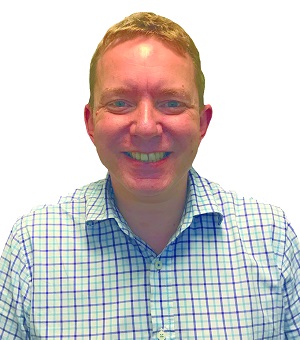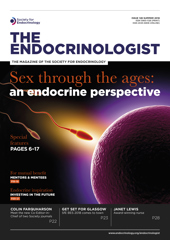I am not a fan of tick boxes, the e-portfolio or ‘all that jazz’: the need for countless sign-offs now seems to start after fresher’s week and to continue till retirement. I am, however, a great believer in life-long learning, continuing professional development (CPD) and, dare I say it, teamwork.
Firms may have gone (hopefully temporarily), and shifts can destroy continuity. It can be hard to make (and keep) professional friends. While social media and the online world can fill some of these gaps for learning and CPD, they can’t replace the nuance of a decent chat.
This is where mentoring comes in for me. I want to be able to informally give advice and encouragement outside the ‘educational supervisor and tick box’ world. However, to my mind, this is an ad hoc system and we are all busy. Consequently, I put myself forward to be a Royal College of Physicians mentor, and completed the necessary 2-day training course and all the homework and CPD points that came with it.
I did it at the end of last year, on 2 days which were 2 months apart. I was surprised by the range of specialties and the enthusiasm of the room. There was a large focus on regulating the relationship, which I had not thought was needed, and on drawing up agreements. Clearly being badged by the College added a layer of bureaucracy and regulation.
I can see there is a power relationship, as most mentors will be more senior clinicians – if not a consultant then certainly more experienced doctors. However, we are all professionals and something less formal ought to be more than sufficient, in my mind. However, the rules are there to protect all concerned, even if you don’t feel you need to be.
The days focused on potential models of being a mentor. There was a stress on the differences from usual educational supervision. Equally, you are not meant to be a spiritual guide/counsellor/any sort of therapist or a short cut for those too lazy to Google.
‘I am a great believer in life-long learning, continuing professional development and, dare I say it, teamwork.’
The models are very varied and not necessarily strictly evidence-based. The theoretical approaches are more based on educational theory than hard science, but all intuitively make sense.
The top tips which the RCP produced are as useful as any (www.rcplondon.ac.uk/news/ten-tips-successful-mentoring). GPs use the skilled helper model and anyone who has had any cognitive behavioural training or experience will recognise the use of Socratic questioning and SMART goals (www.gp-training.net/training/communication_skills/mentoring/egan.htm).
The College gives a very reasonable introduction at https://rcp.onpld.com/learn-more and, as it stands, the course is free as a member/fellow, and comes with 12 CPD points.
At this point, I feel I should confess that, despite my 2 days of training and being registered with the College website, I have yet to be approached by a single mentee. The reasons for this I am still yet to fathom; I am not taking it personally, plenty of others are in the same position. I think sadly that, during all the winter pressure chaos and rota gaps, the idea of mentoring was farcical to some.
I over-emphasise the point, as those who take even a short time to pursue mentoring will reap significant benefits, I have no doubt. This was a motivated group of consultants who wanted to help. What we cannot do is overturn the system, but we could perhaps encourage others not to reinvent the wheel and provide some objectivity. With no prior relationship or vested interest you can ask the ‘innocent’ questions and continue to be supportive for those too lazy to Google.
‘Those who take even a short time to pursue mentoring will reap significant benefits, I have no doubt.’
I think, in conclusion, I would say for the points/lunch and the excuse to go to the College the course is worthwhile – and also for confirmation that no one has all the solutions! However, we are all also time-poor and I do not see that there is any reason not to run something locally with your educational department. The more of these courses you do, the more you see the underpinning theory is the same for most if not all of them. A flip-board, some facilitated discussion and catering should be all you need.
We should all want to be mentoring and coaching as much as possible. We all probably are already, and are just not calling it that. I don’t think it needs to be made more formal, simply to encourage everyone to recognise its use and to appreciate it is not just about ticking a box and missing the point.
Ollie Minton, Macmillan Consultant in Palliative Medicine, Brighton and Sussex University Hospital






